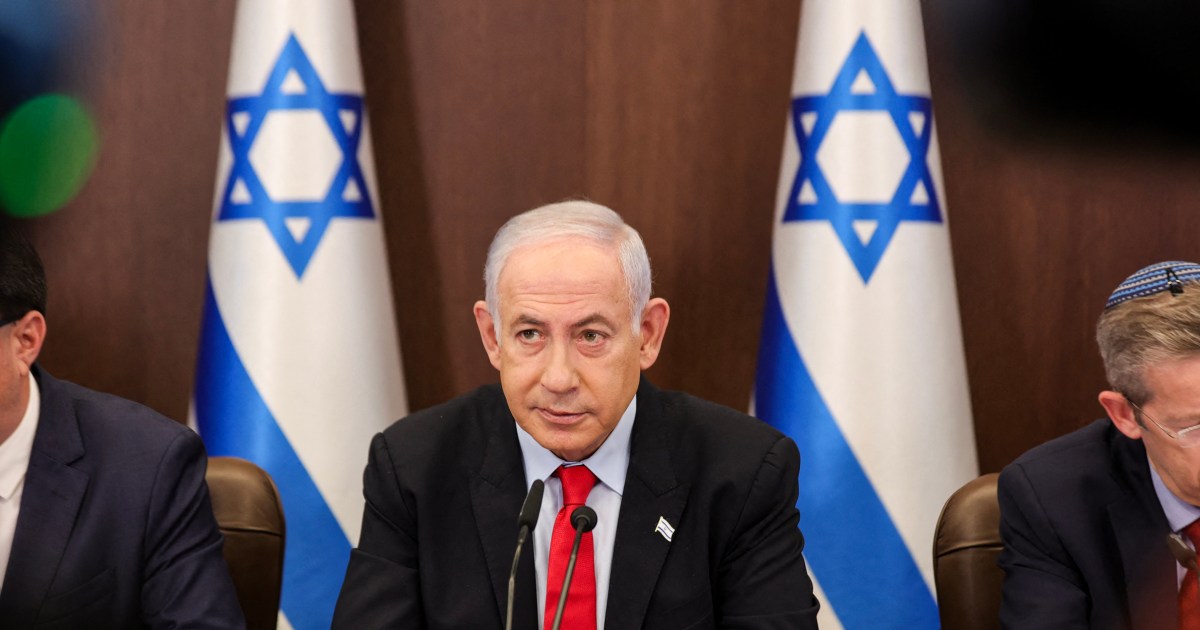
TEL AVIV — As Hamas prepares to deliver its verdict on a proposed deal for a cease-fire and the freeing of more than a hundred hostages in Gaza, ministers, political analysts and people close to Israel’s prime minister say the accord threatens to tear apart the country’s right-wing Cabinet.
While Hamas deliberates, Israel’s war Cabinet is expected to discuss the deal during a meeting Sunday evening, according to Israeli media.
But Itamar Ben–Gvir, the far-right minister of national security, threatened last week on X that “a reckless deal = the dismantling of the government.”
Hours after Ben-Gvir’s comments, opposition leader Yair Lapid volunteered his center-left Yesh Atid Party to enter the Cabinet to rescue the coalition and the hostage deal if Ben-Gvir withdraws.
Even if the current government survives, the conflict over the hostage deal exposes profound rifts in Israeli society. The deal pits dueling narratives of Israel’s vision of itself against each other: its solemn pledge to its soldiers and citizens that no one will be left behind, versus Israel’s oft-stated goal that it will destroy its enemies at any cost.
“Where do you put the primacy in terms of those who say, look, if these hostages aren’t prioritized, they will die in captivity and that will be devastating for the Israeli public and it could really rip the fabric of the Israeli social contract,” said David Makovsky, a fellow at the Washington Institute for Near East Policy and a professor in Middle East studies at Johns Hopkins University. “The other side would say we’ve come this far to defeat Hamas, and if Israel withdraws before the job is done, Hamas will be emboldened to do more Oct. 7s.”
Looming over the conversation is the 2011 deal by Netanyahu to release Gilad Shalit, an Israeli soldier whom Hamas held captive in the Gaza Strip for more than five years. In exchange for Shalit’s freedom, Israel released more than a thousand Palestinian prisoners in Israel, including Hamas leader Yahya Sinwar, who would go on to plan and execute the Oct. 7 attacks.
Ben-Gvir further isolated himself from the Cabinet this weekend after he publicly criticized U.S. President Joe Biden while praising former President Donald Trump in an interview with The Wall Street Journal. He also called on Israelis to resettle the Gaza Strip — an inflammatory position Netanyahu has rejected.
“It’s clear that he’s trying to establish himself as the voice of the right wing,” said a senior government official who asked to remain anonymous because of a lack of authorization to speak with the media. “You understand that right now, Netanyahu needs [Ben-Gvir]. I don’t know about later, but right now he needs him.”
‘It will break the coalition and also the right-wing public.’
The proposed framework of a deal, which was negotiated a week ago in Paris by intelligence chiefs from Israel, the U.S. and Egypt as well as Qatar’s prime minister, would include a six-week pause in the fighting in the Gaza Strip, during which the two sides would exchange Israeli hostages in Gaza for Palestinian prisoners in Israeli jails.
The framework for a deal does not include the number of Palestinian prisoners who would be released for each Israeli hostage freed. Even if Hamas agrees to the framework, negotiations between the two sides regarding those numbers could prove protracted.
Hamas leaders have also so far hewed to maximalist demands from earlier in the war: that Israel’s army fully withdraw from the Gaza Strip and implement a full and final cease-fire — stipulations that Israel has already rejected as nonstarters.
Osama Hamdan, a senior Hamas official in Beirut, told a Lebanese television station on Friday that the group would insist that any deal include freedom for Marwan Barghouti and Ahmad Sa’adat, two Palestinian militant leaders who are serving long sentences in Israeli prisons for murder and belonging to terrorist organizations.
Acceding to those demands would come at an unacceptably high political cost for Netanyahu, according to a former right-wing lawmaker who said they were not authorized to speak on the record.
“Those are the two murderers that we never agreed to release. I don’t believe that Netanyahu will be able to release them,” the lawmaker said. “It will break the coalition and also the right-wing public.”
The hostages’ families, at the same time, routinely hold protests demanding their release. Images of hostages’ family members protesting outside the prime minister’s residences, storming parliament sessions and blocking highways are regular fixtures on Israeli television.
“I believe till today that they prefer to keep on with the war instead of stopping everything right now to bring them home,” said Ifat Kalderon, whose cousin Ofer was kidnapped on Oct. 7 and remains in Gaza, during one of the protests outside the Ministry of Defense. “They must do it. They must have a cease-fire and then make a deal to bring them back home.”
The families’ visible anguish has made the terms of the Paris deal broadly popular among the Israeli public. According to a Maariv poll published in late December, more than two-thirds of Israelis would favor a deal to free hostages that would bring about a cease-fire.
Complicating negotiations for Israel’s right wing is the perception that a six-week truce would be tantamount to ending Israel’s war against Hamas, Makovsky said. With hundreds of thousands of reservists now returning to their day jobs, he said, few Israelis believe that Israel would be able to return to the same combat strength after a six-week pause.
Israelis are also reckoning with the war’s failures. So far, only one hostage has been freed by Israel’s combat operations. Three of the hostages are known to have been shot by Israel’s military by mistake, and many more are thought to have been killed by Israel’s own bombardments.
For many, the question of freeing the hostages is a binary one: destroy Hamas or bring home the hostages. Many here increasingly believe they can’t have both.






